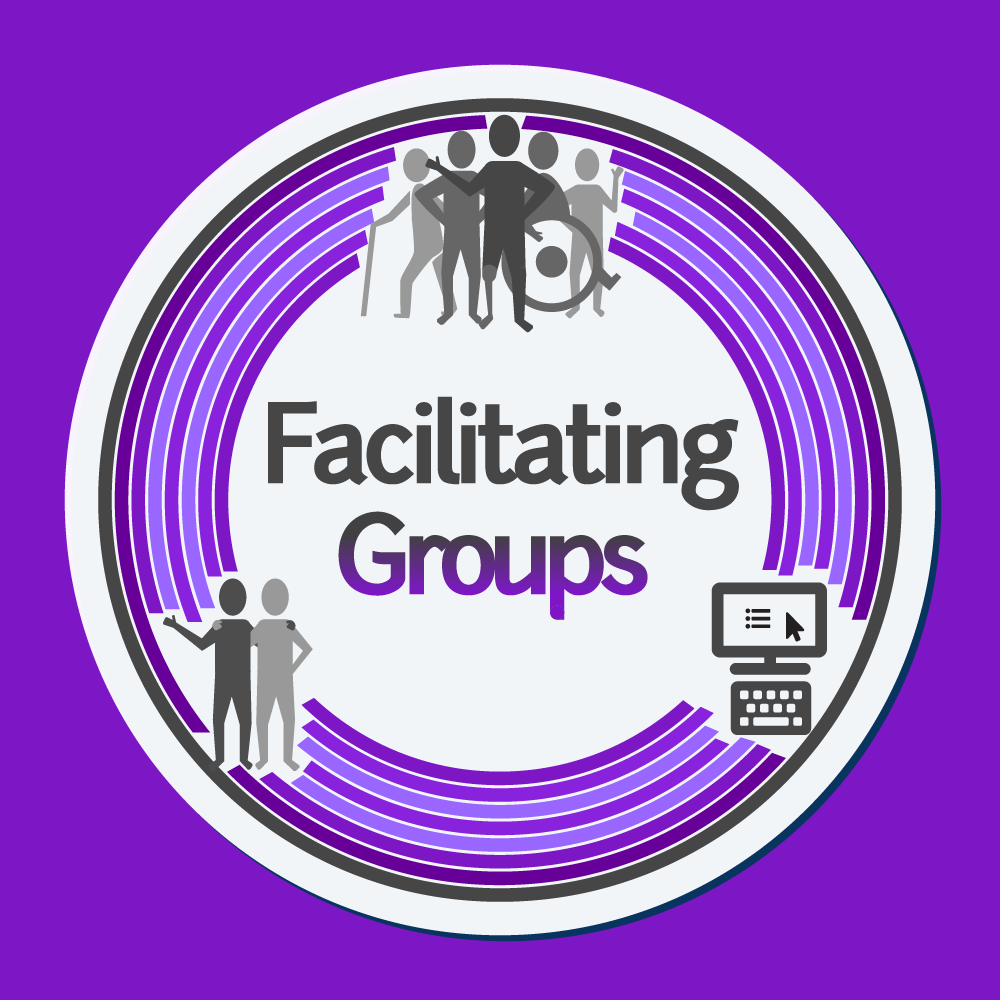Facilitating Groups Training
$500/person
The Facilitating Groups Training (FGT) teaches you the fundamental strategies to be a skilled facilitator with diverse groups.
Training Overview
Trainings are conducted in a group setting on Zoom over the course of 8 weeks. Attendees must participate in all 8 weekly training sessions to successfully complete the training. Each group training session will last approximately 2 hours with breaks as needed. Group sizes will vary but will be limited to 10 attendees.
Live training time includes a review of program content and program activities. Attendees should be prepared to complete readings, review program content, and complete program activities outside of the weekly training meetings. Additional time outside of the group training is estimated to be 1-2 hours of individual work per week.
Session Overviews
Foundations

This session covers the basic roles and responsibilities of a group facilitator. It introduces how to establish and maintain trust with group participants, how to create a safe space, and how to meet people where they are at by being present with them.
Relationships

Part of building relationships with group participants includes setting boundaries and creating clear expectations. This session addresses ways to think about boundaries, enforce them kindly, and explore and consider the ethics of group facilitation.
Active Listening

Active listening is being present and focused on what participants are communicating. This session introduces the basic practices of active listening, including affirmation, paraphrasing, reflecting content, reflecting feelings, summarizing, and non-verbal communication.
Behavior Change

This session covers the basics of how individuals change their behavior and introduces models for understanding the process of generating behavior change. Strategies for supporting and facilitating participants through their behavior change goals are also discussed.
Sharing Your Story

This session guides facilitators through telling the relevant details of their life to group participants at the right time and in the most useful ways. Facilitators can also help consumers find ways to tell their stories.
Asking Questions

This session introduces different types of questions facilitators might ask group participants to elicit information needed to support them. It also provides strategies for blending questioning with other facilitating skills to help participants gain insights and move forward.
Direct Communication

Unlike active listening or asking questions, direct communication requires you to share your ideas, perceptions, and insights with the group participants. Offering your observations or opinions requires attention and skills to ensure that it is received as supportive. This session introduces different types of direct communication and when those strategies might be useful for supporting the group.
Referrals

Planning for the end of the group workshops is an important part of the facilitators’ role. This session covers when and how to give referrals and the strategies and tasks for facilitating a good ending for the group.
Facilitator Self-Care

Being a group facilitator is both rewarding and taxing. It is important that facilitators take care of themselves so they can continue to be great facilitators. This session introduces the idea of self-care and guides facilitators on how to recognize signs of stress, sources of support, and other strategies for self-care.
Accessibility

Facilitators should be familiar with the guidelines for providing reasonable accommodations in a workshop setting. This session introduces basic accessibility practices, and how to create a successful workshop space for everyone.











